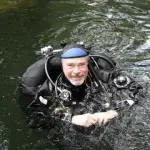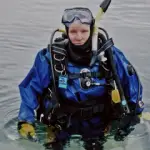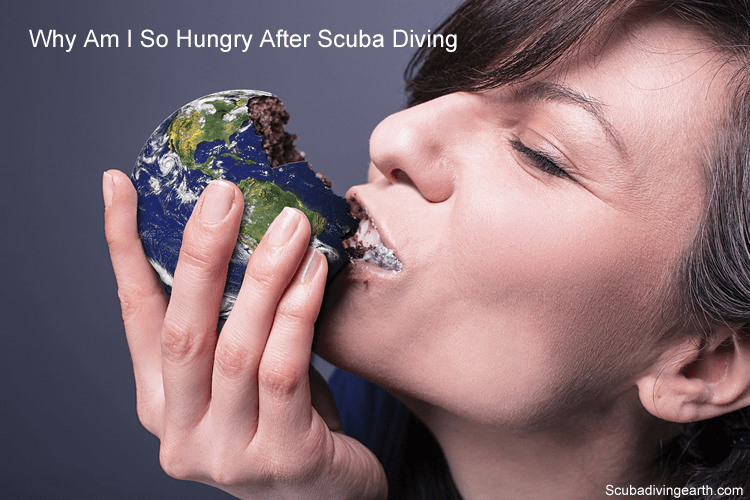
Why is it that scuba diving makes you feel so hungry and is this normal?
It’s quite normal to feel hungry after you scuba dive. You’ll find this happens more when you dive in hot climates or when you dive in cold water.
So you’re probably wondering why you feel so hungry after scuba diving. The reason you feel hungry after scuba diving is partly from dehydration because your brain can confuse thirst with hunger. Secondly, you burn up to 600 calories per dive due to additional heat loss in water, which will give you an appetite and make you feel hungry.
The best way to do more diving is to book yourself on a scuba diving liveaboard. You can check the latest and best deals on liveaboards using the following window:
What causes you to feel so hungry after scuba diving?
- Dehydration can mimic feelings of hunger.
- Genuine hunger due to extra calorie burn.
1. Dehydration can mimic feelings of hunger so you feel hungry after scuba diving
Mild dehydration is often masked as feelings of hunger. You may feel hungry after a dive and want to reach for food, when in fact your body simply needs fluids to re-hydrate instead.
It’s important to drink plenty of fluids before after after each scuba dive. Always have water just before you go on your dive. Drink plenty of water in-between dives too.
Why you dehydrate when scuba diving
- The air in your dive tank has had most of the moisture taken out. Breathing this dry air will cause dehydration.
- When you scuba dive in the sea you’re diving in salt water. Salt water will have a dehydrating effect on your skin through the action of osmosis. Osmosis will draw out the moisture from your skin. Hopefully you’ll remember biology at school?
- Thirdly, if you dive in hot weather you will dehydrate quicker in-between each dive. When it’s hot on a dive boat you should make sure to drink extra water before your dive.
- When scuba diving you breathe through your mouth. Breathing through your mouth is more dehydrating, as you tend to lose more fluids than when you breathe normally though your nose. Think of a panting dog. A dog pants to cool down, which it does through the loss of moisture from it’s mouth and tongue.
It may seem strange to be discussing dehydration when the article is about why you feel so hungry after scuba diving. But there’s actually a fault inside your brain. When dehydration sets in your hypothalamus is misled. This confusion send out confusing signals to make you feel hungry instead of thirsty. As a result you’ll probably grab something to eat when in fact you really only needed a drink of water instead.
Dehydration can lead to other problems when scuba diving. For example, dehydrated divers are more likely to suffer from decompression sickness.
Many holiday-makers (scuba divers included) forget to drink enough water when on holiday. They also tend to drink more alcohol too. Alcohol is known to dehydrate the body.
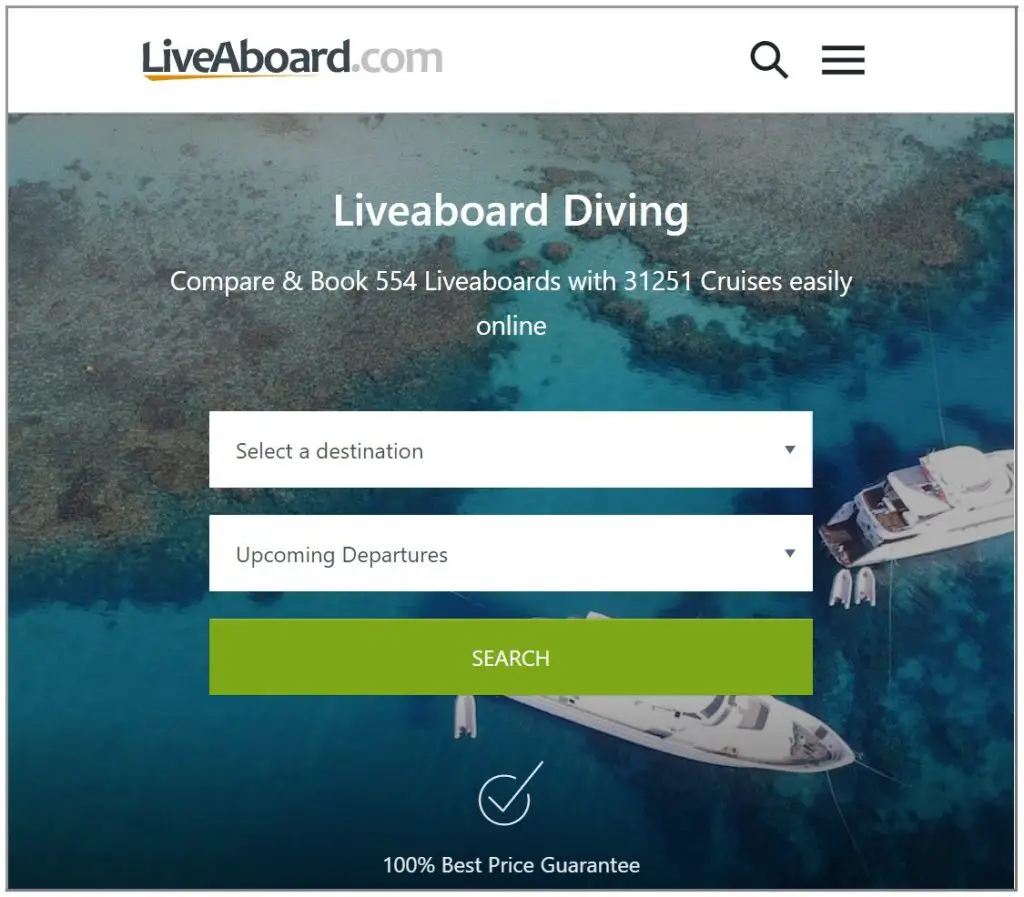
How to avoid dehydration which will help you to avoid feeling hungry after scuba diving:
- Avoid too much caffeine as this will dehydrate you.
- Avoid drinking excessive alcohol as this is a dehydrant.
- Drink more water before and after each dive.
- Stay hydrated at night by drinking plenty of water before you go to bed.
- Take your own bottle of water just in case the dive boat runs out. Avoid one-use plastic bottles if you can.
- Avoid overheating before your dive by staying out of the sun.
- Avoid putting your wetsuit on until you need to. Otherwise you’ll overheat and sweat.
2. Genuine hunger due to extra calorie burn when scuba diving
The reason why you feel hungry after scuba diving is simply because you’ve burnt more calories. It’s estimated that you burn around 600 calories per hour scuba diving.
Whilst scuba diving is a relatively low impact sport you still burn high levels of calories. The high calorific burn rate is due to heat loss. Water is 25-times more efficient at conducting heat away from your body.
This is why choosing your correct exposure suit (wetsuit or drysuit) is very important for scuba diving. But even when you wear the correct exposure suit you will still be losing heat faster than you do on land. This extra heat loss will increase your calorie burn which makes you feel hungry quicker than normal.
You may like to read what you should where under your wetsuit when scuba diving. Or about what it’s like to dive in a drysuit.
Although scuba diving is a slow moving sport, but scuba diving is more of a work out than you might think. It’s good to take things slowly when you dive, as this is all about conserving air. But even with this slow movement you will use up more energy swimming through water because it’s so dense.
More Reading: Does a dry suit keep you dry (What are the exceptions & do you get wet)
How you avoid excessive calorie burn and reduce hunger feelings when scuba diving
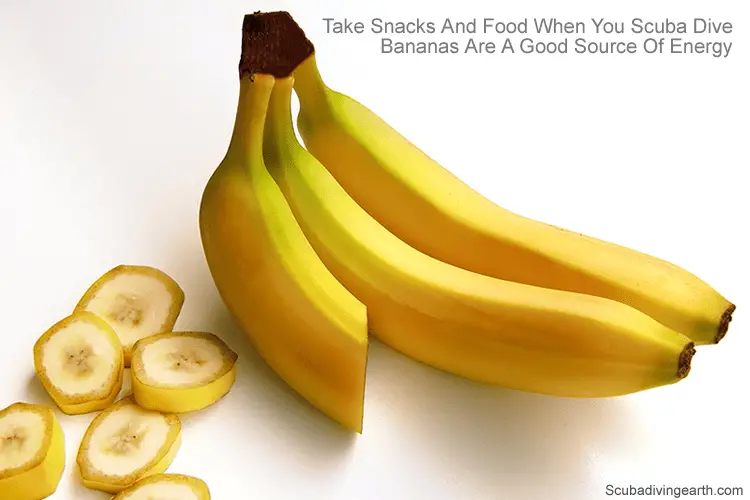
Take snacks and food when you scuba dive to avoid feeling hungry
To compensate for the extra calorie burn take food and snacks on board the dive boat. Unless you’re on an all-inclusive liveaboard dive trip.
Scuba diving liveaboards table
This list of liveaboards is in descending customer rating order, followed by Scuba Diving Luxury Rating (SDE Lux Rating, see below), so the liveaboards with the highest customer rating and the best SDE lux rating will be at the top of the list. If you want to change the list order, use the “Sort by” dropdown below.
| Discover Liveaboard | Customer Rating | SDE Lux Rating % | Flexible Booking | Dive Courses | Dietary Requirements | Nitrox | Country | |
|---|---|---|---|---|---|---|---|---|
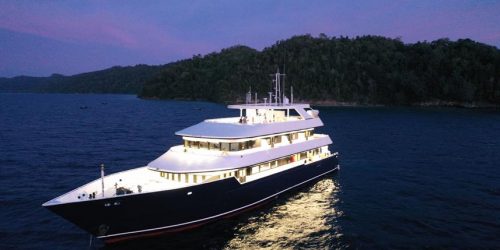 |
Review: MV Seaisee; Book: MV Seaisee | 10 | 90% | YES | NO | YES | YES | Indonesia |
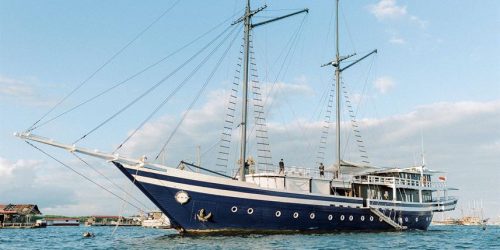 |
Review: Scubaspa Zen; Book: Scubaspa Zen | 10 | 88% | YES | YES | YES | YES | Indonesia |
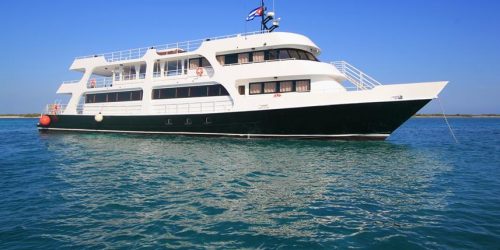 |
Review: Jardines Avalon Fleet - Charter Only; Book: Jardines Avalon Fleet - Charter Only | 10 | 83% | YES | NO | YES | YES | Cuba |
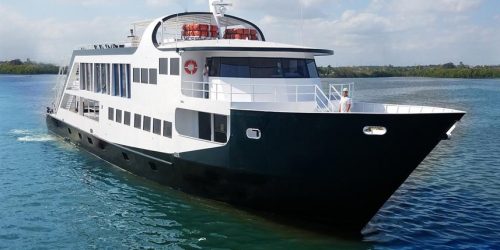 |
Review: Jardines Avalon Fleet; Book: Jardines Avalon Fleet | 10 | 83% | YES | NO | YES | YES | Cuba |
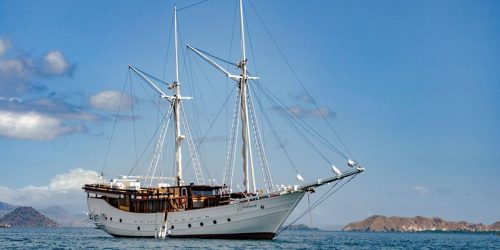 |
Review: Jakaré; Book: Jakaré | 10 | 81% | YES | YES | YES | YES | Indonesia |
 |
Review: All Star Cuan Law; Book: All Star Cuan Law | 10 | 79% | YES | YES | YES | NO | Virgin Islands |
 |
Review: Leyla; Book: Leyla | 10 | 73% | YES | YES | YES | NO | Indonesia |
The Scuba Diving Earth Luxury Rating (SDE Lux Rating) is explained on each liveaboard review when you click the “Discover Liveaboard” link, and is my own Liveaboard Luxury Rating I’ve assigned to all liveaboards. Choosing between liveaboards is helped by customer scores, and if you get stuck choosing between two or three liveaboards, where each one has a high customer score out of 10, you can use the SDE Luxury Rating to help narrow down your choice.
Think about it like using Booking.com when searching for the best hotel. Booking.com also use a customer score where each customer rates hotels out of 10. This is similar to the liveaboard customer rating, which is also rated out of 10. But let’s say you only like to stay in hotels rated 8 and above on Booking.com, but you also want the hotel to have WIFI or parking, or to have a swimming pool etc. The features each hotel has is usually secondary to the score out of 10.
One of the best replenishment foods to take when you’re scuba diving is bananas. Bananas are great for quickly replacing lost calories and a great source of energy.
Wear good thermal insulation suitable for the temperature of the water
To reduce heat loss and hence reduce the calorie burn rate make sure you’re thermal insulation is suitable for the water temperature. Wear a thicker wetsuit when the sea temperature drops. In colder water dives wear a drysuit instead of a wetsuit.
More Reading: What is the difference between a wetsuit and a dry suit?
The added benefit of keeping warm is a improved air consumption. If you are cold your calorie burn rate will be higher. This higher calorie burn will require more oxygen. The more oxygen the body needs the more you’ll breathe, which means you’ll use your air supply much quicker.
You might want to read these 22 pro tips to conserve air when scuba diving.
I hope you enjoyed this article about why am i so hungry after scuba diving
I’d love to hear from you. Tell us about your adventures of diving and snorkeling, in the comments below. Please also share your photos. Either from your underwater cameras or videos from your waterproof Gopro’s!
If this article hasn’t answered all of your questions. If you have more questions either about snorkeling or scuba diving (or specifically about why am i so hungry after scuba diving), please comment below with your questions.
There will also be many more articles about scuba diving (and snorkeling) for you to read and learn about these fabulous sports.
Have fun and be safe!


